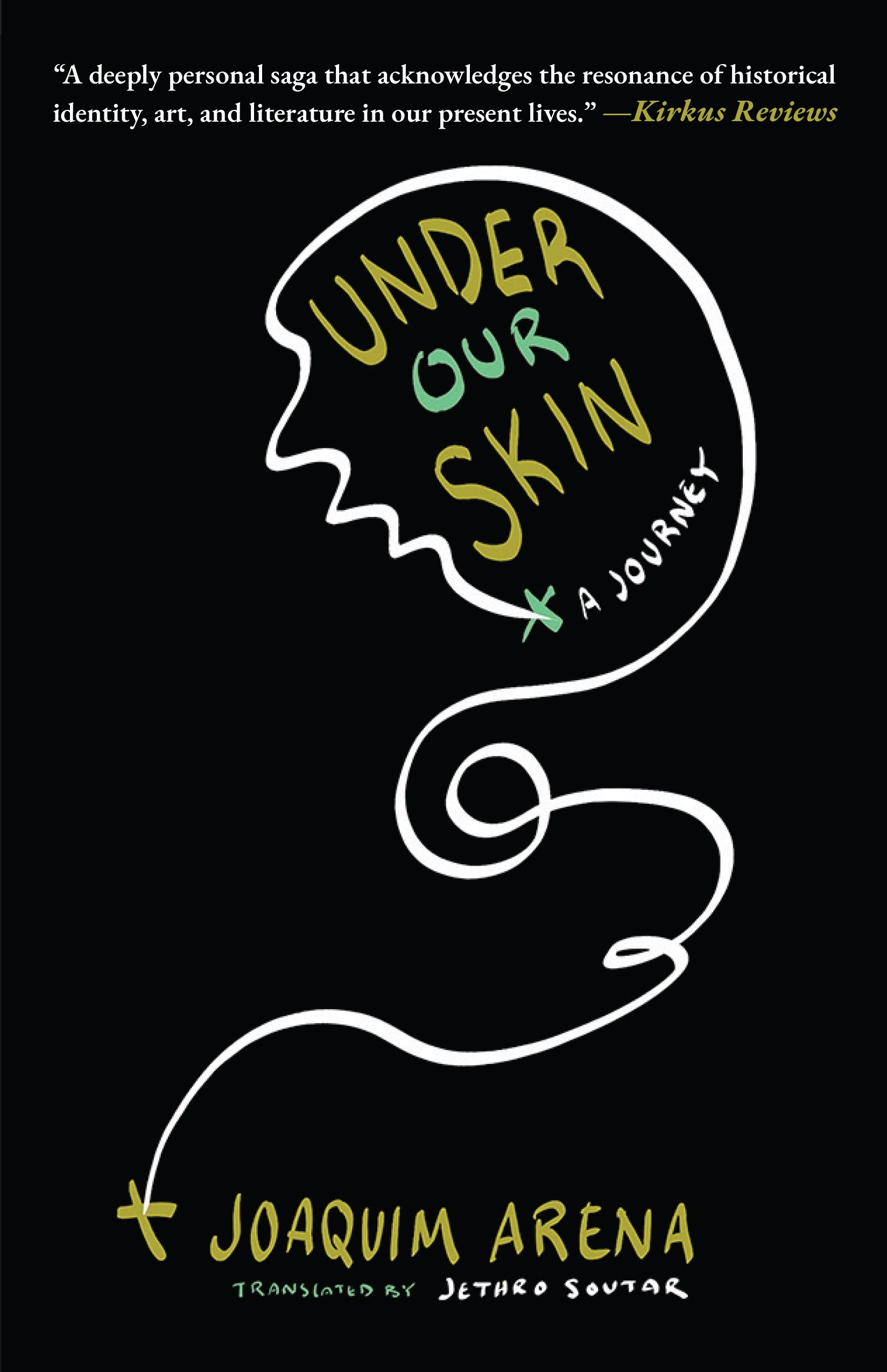Under Our Skin: A Journey
by Joaquim Arena
translated by Jethro Soutar
Published: November 21, 2023
ISBN: 9781951213527
Paperback $18.00
by Joaquim Arena
translated by Jethro Soutar
Published: November 21, 2023
ISBN: 9781951213527
Paperback $18.00
by Joaquim Arena
translated by Jethro Soutar
Published: November 21, 2023
ISBN: 9781951213527
Paperback $18.00
Under Our Skin: A Journey
Joaquim Arena
1570. A street teems with activity in Renaissance Lisbon: boatmen unload passengers as jugglers entertain the crowd and vendors hawk their goods. The crowd is large, and more than half of it is Black. Most are enslaved African people performing an array of duties, but there are free Africans too, and somebody else: a Black knight astride a horse.
Four hundred and fifty years later, novelist and journalist Joaquim Arena stands in a museum, transfixed by the character depicted on this canvas by an anonymous Flemish painter. He doesn’t know it yet, but the knight is Joao de Sá Panasco, a one-time slave who nevertheless became an Afro-Portuguese nobleman.
Arena was born in the tiny state of Cape Verde, a small chain of islands off the West Coast of Africa which were uninhabited before Portugal chose them for a slave-trade post―a place made famous in part by Herman Melville's essay on the nature of Cape Verdeans (known as 'Gees') who were common fixtures on whaling vessels. With this awareness, and the death of his adoptive, seafaring father, Arena begins to interlace the stories of historical figures with the complex and fascinating characters from his own childhood in Cape Verde and Lisbon to create a hybrid text of diasporic travel writing, memoir, and history from Europe to the US, and finally, back to Africa.
With a skillful translation by Jethro Soutar that captures Arena’s insightful, accessible style, Under Our Skin is a story unlike anything else. Of it, the Jornal Económico, a leading newspaper in Portugal, has called it “the closest thing” the Portuguese language has to W.G. Sebald.
Praise for Under Our Skin
"This ambitious, polyphonic text moves between travel writing, deep observations of Renaissance art, and searing reflections on the meaning of home... Quiet and somber scraps of evidence and memories are drawn into a glittering whole that evokes history’s forgotten voices. Under Our Skin is an enigmatic story about how pain and struggles reverberate through the generations."
—Foreword Reviews
"A well-written, deeply personal saga that acknowledges the resonance of historical identity, art, and literature in our present lives."
—Kirkus
"Arena manages to weave history, memoir, and travel writing, into an idiosyncratic and entertaining exploration of the early roots of the Black African diaspora in Europe... [his] journalistic skills are evident in his ability to transition between historical details and present day encounters."
—roughghosts
"Arena’s book reminds us that what was made can be unmade if we, like his friend Leopoldina (also profiled in this book), understand how things came to be."
—Alex Aguayo, Words Without Borders





